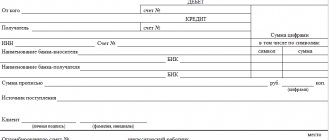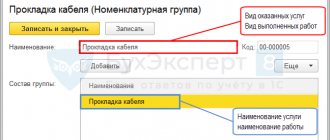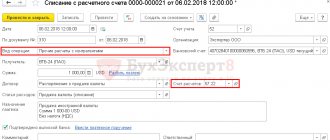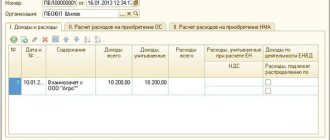General overview
So, repatriating funds is a mandatory task for residents who receive income in foreign currency as a result of participating in international transactions. It is worth immediately emphasizing that the procedure applies not only to foreign, but also to national money, and is of particular importance from the point of view of maintaining the volume of material wealth within the state. The fundamental principle is to exclude situations where economic entities engaged in foreign trade leave proceeds in the country where the counterparty is registered. The outflow of resources abroad must be compensated by the receipt of commensurate monetary compensation - the rules defining this procedure are enshrined within the provisions of Article 19 of the Federal Law of December 10, 2003. No. 173-FZ “On Currency Regulation and Currency Control”, dedicated to issues of currency control and regulation.
You need to repatriate money in two cases. The first category of legal relations consists of situations when, on the basis of accepted contractual obligations, residents transfer inventory, information data or intellectual property rights to non-residents, and also provide various types of services and perform work. The second group is improper fulfillment of the terms of the contract, in which local companies transfer payment to counterparties for planned imports, but the transaction ultimately turns out to be imperfect, that is, adequate compensation in the form of material benefits does not arrive on the territory of the Russian Federation. This block of legal relations is of particular importance from the point of view of ensuring currency control, since it often includes precedents for financial fraud.
Legislative trends in the field of control and regulation of currency repatriation
As explained above, mandatory repatriation of foreign currency earnings is a way to protect the state’s financial system from the flow of money abroad. In 2022, there are trends of relaxation in the field of currency regulation. Article 19 of the Law “On Currency Regulation” dated December 10, 2003 No. 173-FZ was amended to reflect the course towards a phased abolition of repatriation. The changes concern the size of the share of funds that foreign trade participants have the right to “leave” abroad - now it has increased to 30%. The previous figure was 10%. In the future, it is planned to increase this limit even more - up to 100% by 2024. However, the measure only applies if the following conditions are met:
- settlements under contracts are carried out in Russian currency;
- the object of transactions is certain raw materials listed in clause 4 of Art. 2 of Law No. 265-FZ.
Also, Russian organizations are now given the right not to receive funds from foreign partners, but instead to offset counter obligations. Settlement is not subject to the repatriation requirement. This measure significantly reduces the risk of violating foreign exchange controls. The list of goods and services for which the amendment applies is determined by law.
How it happens
The process involves three parties: participants in foreign trade activities, as well as the banking organization that services the resident company. When concluding an agreement, local firms and entrepreneurs are required to notify the authorized bank about its aspects, first of all, about the maximum possible time frame within which funds should be received in the current account, or the time period allotted for the import of goods and materials into the country and the implementation of agreed work or provision of services.
In accordance with the instruction of the Central Bank of the Russian Federation No. 181-I, from March 2022, a decision was made to cancel the previously mandatory registration of a transaction passport. Today, instead, it is enough to register a foreign economic agreement, guided by standard regulations.
In situations where a foreign counterparty does not fulfill repatriation obligations, the resident’s task becomes to ensure that insurance compensation is received in the current account, covering the risks of non-payment. It is important to take into account that the repatriation of funds in foreign currency is a mandatory condition that must be fulfilled within the time limits provided by law. In some cases, the obligation may be transferred to another legal entity - a factor in whose favor the right of further claim under the foreign trade agreement is assigned. In this case, the fact of receipt of money will be the basis for notifying the entity that has ceded powers within five working days.
When there is a need for repatriation
There are several such cases:
- In cases of various events (sports, cultural and others), exhibitions.
- In cases of erection of various buildings, structures or fulfillment of other orders.
- In cases of transfer of various goods, including intellectual property.
- In cases of gas or oil transit.
- Other situations.
Currently, there is a rule that a resident has fulfilled the promise to repatriate funds if he (she) guarantees the receipt of his own bank accounts in authorized banks and (or) bank accounts in authorized banks of the resident who is considered the beneficiary of the transaction, foreign funds units or monetary units of the Russian Federation under a transaction that guarantees the promises of a non-resident under a foreign trade agreement and is taken into account in the manner established by the Government of the Russian Federation for the implementation of export credit insurance.
This also implies relations in the field of investment against political risks, commercial risks, provided that the acquired amount is equal to or higher than that established by the designated procedure, within the time limits provided for by the relevant transaction.
The resident must be aware of all the responsibilities. He is recognized as having fulfilled the promise of repatriation in a foreign currency if restrictive measures (sanctions) were used in relation to the resident by a foreign state, a municipal body or trade union body, or a municipal (interstate) institution of a foreign state, or a municipal association and (or) resident union is included in the list approved by the Federal Tax Service (FTS), agreed upon with the Ministry of Finance of the Russian Federation and posted on the official website of the FTS.
A resident is included in this list on the basis of his (her) written application submitted to the Federal Tax Service, which contains a reference to the regulatory act in accordance with which restrictive measures were imposed on such a resident.
When not required
The return of foreign currency earnings to the territory of the Russian Federation is a general rule, for which certain exceptions are provided. You can avoid the procedure for crediting foreign currency to a current account in one of the national banks if the following circumstances exist:
- Funds received at the details registered with a foreign financial institution are intended to fulfill obligations of a credit or debt nature, the beneficiaries of which are foreign government agents, or residents of countries that are members of the FATF (Financial Action Task Force on Money Laundering) and the OECD (Organization for the Economic cooperation and development).
- Financial resources are allocated for the construction of facilities located on the territory of another country, provided that the construction cycle has not yet come to completion.
- The basis for receiving it is the holding of exhibitions, sports or other events organized abroad, and the money itself is necessary to ensure related processes.
- The proceeds are received as offset against agency obligations arising within the framework of fishing, gas or transport cooperation, as well as on the basis of reinsurance.
- Funds are transferred to the accounts of logistics companies operating outside the Russian Federation.
Repatriation of arrivals from Russia
What is the most common way to repatriate profits from Russia?
If you own capital in a Russian company, either as a shareholder in a Russian corporation or as a member of a Russian limited liability company, profits earned in Russia may be paid to investors as dividends.
Shareholders can declare profit distributions quarterly, semi-annually or once a year.
Are there any restrictions on the payment of dividends?
Yes. The distribution of dividends is strictly limited by law. For example, profits cannot be distributed among investors if:
- the shareholder has made an incomplete contribution to the capital;
- the company is insolvent or will become so as a result of the distribution of profits;
- The company's net asset value is negative or will become negative as a result of the distribution of profits.
We announced the payment of dividends. Are we required to pay income tax?
Yes. Generally, dividends are considered taxable income.
Please note that foreign investors may be subject to double tax treaties concluded between Russia and their country of residence. Under many such treaties, foreign investors may pay income tax on dividends in their country of residence.
Please be aware that double tax treaties may have additional specific requirements, such as minimum capital contribution, maximum tax rate on dividends, etc. We therefore strongly recommend that you seek the assistance of a tax advisor in applying the provisions of such treaties to dividend income.
If foreign investors (both non-residents and foreign companies) decide to pay tax on dividends in Russia, they must pay tax on distributed profits at a rate of 15%.
Some countries have intermediary companies for the transit transfer of income. Are there such companies in Russia?
A conduit company is a special commercial structure established to avoid double taxation. Such companies do not pay corporate income tax. The company's profits are distributed among the owners, who pay income taxes.
Russian corporations and limited liability companies cannot avoid double taxation. This means that companies pay tax on the profits they make, after which shareholders also pay tax on dividends.
Double taxation is probably the only downside to distributing profits through dividends.
We would like to avoid double taxation. Is there any alternative to paying dividends?
Some companies hide distributed profits as interest or fees.
For example, a parent company provides a loan to a Russian subsidiary and receives interest, or provides management services to such a company and receives a fee.
The Russian company then deducts the interest and fees as business expenses, which in turn results in a reduction in taxable income, resulting in the funds actually distributed being not subject to corporate tax.
Interest and service income received by shareholders is then subject to income tax, but only after it is received by the shareholders.
It should be remembered that the use of such methods is limited and in some cases they may be considered illegal transactions.
08/12/2020 Explanations from the Federal Tax Service on controlling costs for intragroup services
What are the interest limits?
Russian thin capitalization rules limit the withholding of interest payments by imposing a debt-to-equity ratio of 3:1.
If the amount of interest on any debt exceeds this ratio, the interest is not withheld for tax purposes.
How can Accountor help you?
Accountor Russia's tax specialists can provide you with advisory services and develop the most appropriate and legal scheme for repatriating profits from Russia. We have 25 years of experience in tax optimization and consulting for foreign companies of all sizes, including Fortune 500 companies in Russia, and would be happy to assist you. Feel free to contact us with any questions.
What is the time frame for repatriation?
Based on the provisions enshrined within the first paragraph of Article 19 of the regulatory federal law, the time period is determined by the terms of the concluded foreign economic contract. Such a formulation, which is rather streamlined and vague, is determined by the individuality of legal relations in various business segments. Agreements may provide for both one-time and differentiated payments, repayment of debt upon delivery, or transfer of money in advance. In this regard, when preparing documents, it is worth paying special attention to points related to monitoring the timing of repatriation - the return of foreign currency earnings from export and import transactions - in order to ensure a sufficient margin of time to comply with legal requirements.
Responsibility for violations
Failure to comply with the law, as in any other case, is the basis for the application of proportionate sanctions against guilty subjects, provided for not only by administrative, but also by criminal legislation. In the first case, we are talking about the provisions of Article 15.25 (Part 4, Part 5) of the Code of Administrative Offences, in the second - about Art. 193 of the Criminal Code of the Russian Federation.
As a punishment, fines are used, the possibility of forced labor for up to 48 months, as well as up to 5 years of imprisonment - provided that the criminal act is characterized by a particularly large size, that is, the amount of unrepatriated funds exceeded the threshold of 45 million rubles Criminal acts involving values starting from 9 million are considered major. It is worth noting that the Ministry of Finance, which is implementing a course to soften the norms of legislation, is considering the possibility of excluding Art. 193 of the Criminal Code, with subsequent breakdown of its composition based on qualifying features characteristic of Articles 159, 171, 174 and 196 of the Criminal Code.
Fines
The penalties provided for by the legislator can indeed be considered severe. For example, there are situations when goods planned for import into the territory of the Russian Federation are not delivered. Such a violation of the repatriation rules in foreign exchange control is the basis for imposing a monetary penalty, the amount of which varies in the range of 3-30% of the amount of the payment transferred to the foreign counterparty.
However, previously a similar measure provided for a penalty of 75 to 100%, so the changes adopted in 2022 have to some extent made life easier for participants in foreign trade activities. Today, the maximum value remains relevant only for those cases when the total arrears for the year exceed 100 million rubles.
Recommendations for minimizing risks
In order to minimize the likelihood of administrative, and even more so criminal, penalties, special attention should be paid to the preparation of foreign trade contracts and compliance with legislative norms in this area.
First of all, it is important to competently and comprehensively check potential counterparties with whom it is planned to conclude an agreement for the import or export of goods, provision of services or performance of work. Among foreign company entrepreneurs, there are also a considerable number of scammers and shell companies whose only goal is to enrich themselves by committing illegal actions.
One of the verification tools is registers of legal entities maintained by authorized departments of foreign states. For example, in China there is a website for the market control and regulation service, which contains fairly detailed information about each registered entity, which is especially important given the growing number of import transactions concluded by Russian businesses. However, in order to fully ensure the reliability of the counterparty, it is best to organize a personal meeting at the exit site, evaluate the production conditions and check the quality of the products offered. Such precautions are by no means excessive, since in the future they may turn out to be a compelling argument for a court hearing a case of violation of the rules for the repatriation of foreign currency funds.
Another, no less important aspect is the competent drafting of a foreign trade contract, reflecting the duties and rights of each party, as well as the liability that arises in case of non-fulfillment. A well-drafted agreement ensures legal protection of the resident’s interests, and is also taken into account by regulatory authorities responsible for verifying compliance with current repatriation rules. For individual transactions, it is worth considering the possibility of obtaining bank guarantees that exclude violations of financial discipline.
One of the options that solves most of the issues related to conducting foreign economic activity is cash settlement services at MORSIKIY BANK (JSC). A team of qualified specialists is always ready to help and find the optimal approach to meet the needs of a business of any size and profile. In addition to supporting foreign trade activities, the range of services provided also includes connecting payroll projects and acquiring, issuing international corporate cards, remote management of a current account via a mobile client, as well as other options necessary to increase the efficiency and profitability of the company.
Fines, risks and liability
Fines for failure to register and failure to submit documents to the bank
In particular, the following actions fall into this category:
- failure to submit accounting and reporting forms for currency transactions to the bank;
- failure to provide supporting documents and information when carrying out currency transactions,
Penalized (if the delay is more than 90 days):
- FL - up to 3,000 rubles;
- officials - up to 5,000 rubles;
- Legal entity - up to 50,000 rubles.
Fines for non-repatriation
This category includes:
- non-repatriation of proceeds to an account in Russia in relation to any loan contract;
- non-repatriation of advances paid to non-residents for unfulfilled supplies;
- non-repatriation of proceeds in relation to a raw materials foreign trade contract in rubles in the amount of >200,000 rubles (according to limits and until complete release by 2024, unless relaxations are adopted);
- non-repatriation of proceeds in relation to a commodity foreign trade contract in foreign currency in the amount of >200,000 rubles in equivalent (unless relief is adopted);
- failure to fulfill the obligation to fulfill / terminate obligations under a foreign trade contract.
Penalties:
- FL - for all violations, except for non-repatriation of advances and failure to fulfill the obligation to fulfill the contract. A warning or a fine of 1/150 of the key rate of the amount of funds credited late, for each day of delay in repatriation and/or a fine of 5% to 30% of the amount of unrepatriated funds, depending on the type and currency of the agreement.
- Officials - for all violations. Fine up to 30,000 rubles.
- Individual entrepreneurs and legal entities - for all violations. A warning or a fine of 1/150 of the key rate of the amount of funds credited late, for each day of delay in repatriation and/or a fine of 5% to 30% of the amount of unrepatriated funds, depending on the type and currency of the agreement or funds due to a resident from a non-resident ( if the obligation to repatriate is cancelled).
Separately, it is worth mentioning that individual entrepreneurs and legal entities can also be held liable in the amount of from 75 to 100% of the amount of funds not credited to accounts (in the Russian Federation or abroad) under the contract if their amount exceeds 100 million rubles (for all currency transactions with a non-resident for a year) and such a violation will not have the characteristics of a criminal offense.
Criminal liability
This category includes:
- non-repatriation of proceeds in relation to the same types of contracts and cases as indicated above, except for non-repatriation under loan agreements;
- actions if the amount of unreturned revenue exceeds 100 million rubles and the resident has previously been brought to administrative liability.
Punishable:
- a criminal fine of up to 500,000 rubles / in the amount of income for a period of up to 3 years;
- forced labor for up to 3 years;
- imprisonment for up to 3 years.
If a crime is committed on a particularly large scale (more than 150 million rubles), the punishment is imprisonment for up to 5 years with a fine of up to 1 million rubles / in the amount of income for a period of up to 5 years.
Besides
We also remind you that when opening a bank account or an account in other financial organizations outside Russia, residents are required to report such opening (closing / changes in account details) and provide data on account turnover to the Russian tax authorities. These provisions of the law have not changed.
For individuals:
- obligation to report the opening (closing / change of details) of an account - no later than 1 month from the date of the relevant event (fine up to 5,000 rubles);
- the obligation to report on account turnover is until June 1 of the year following the reporting year (fine up to 3,000 rubles).
For legal entities / individual entrepreneurs:
- the obligation to report the opening (closing / change of details) of an account - no later than 1 month from the date of the corresponding event (fine for individual entrepreneurs up to 50,000 rubles, for legal entities - up to 1 million rubles);
- the obligation to report on account turnover is quarterly within 30 days after the end of the reporting quarter (fine for individual entrepreneurs up to 5,000 rubles, for legal entities - up to 50,000 rubles).
From October 1, 2022, following the development of technological progress, an additional obligation is introduced for residents to provide similar reporting in relation to electronic wallets and similar payment instruments opened in foreign payment systems.
Thus, individuals submit a report on wallet turnover before June 1 of the year following the reporting one, and legal entities and individual entrepreneurs - quarterly within 30 days after the end of the reporting quarter.
Fines for violations are:
- a fine of 75-100% of the amount of funds transferred using electronic means of payment - for prohibited currency transactions (IP/LE/FL);
- a fine of 20-40% of the amount of funds credited to the wallet - for failure to submit reports (individual entrepreneurs/entities/individuals).
- a fine of up to 3,000 rubles (individual) / up to 50,000 rubles (legal entities/individual entrepreneurs) depending on the number of days of delay in submitting reports.
New requirements for loan agreements with non-residents
The updating of legislative norms, adopted in 2022, brought further changes to the conditions for the repatriation of foreign currency funds transferred to foreign counterparties. In accordance with the established procedure, the concluded agreement must contain an indication of the terms of return - otherwise authorized banks do not have the right to accept it for accounting and carry out any operations. The borrower is responsible for timely repayment, which also becomes subject to verification by financial institutions. If violations are detected, information is transferred to the Central Bank.
Repatriation of capital
The repatriation of capital is directly related to its export. During a period of deterioration in their economic situation, countries that exported capital introduce measures to ensure the return of invested funds. For these purposes, a special tax and credit policy is used, providing guarantees and benefits.
An example is France after the end of World War II, where government authorities in charge of exchange control allowed capital to be returned to the country through the precious metals market on preferential terms. This step by the government can be considered as an amnesty for national capital that left France on the eve and during the war. States that import capital often impose restrictions on the repatriation of capital invested in their economy when times get worse.
Repatriation of capital makes it possible for the country to declare an amnesty for those who previously illegally withdrew funds abroad. A similar problem is typical for today's Russia, where the monthly export of capital reaches $2.5 billion. This situation will apparently persist until discussions regarding legislation on capital amnesty are over.
In countries with fully developed economies, foreign currency received from the sale of an economic product is returned to the country in accordance with the norms and payment terms established in international practice. In anticipation of an appreciation of the national currency, the transfer of funds to the homeland is usually accelerated. In the context of the upcoming devaluation, the opposite phenomenon occurs: the return of revenues slows down. This has a negative impact on the country's economy.
Repatriation of currency received under foreign trade contracts
In 2022, legislative acts came into force that soften the procedure for returning proceeds from foreign economic transactions for enterprises engaged in export activities not related to the supply of raw materials or energy resources.
The amendments enshrined in provide for the phased abolition of this obligation under contracts implemented in Russian rubles, and the amendments approved by Federal Law No. 223-FZ of June 28, 2021. canceled from July 1, 2022. the obligation for a number of Russian exporters to receive foreign currency from non-residents into their accounts in authorized banks. It is permissible to credit proceeds to foreign bank accounts.
Legislative definition of repatriation by residents of foreign currency and currency of the Russian Federation
What is the repatriation of foreign currency and the currency of the Russian Federation for residents of the Russian Federation is written in Art. 19 of the Law “On Currency Regulation” dated December 10, 2003 No. 173-FZ. The said repatriation involves two aspects:
- Residents who are participants in international contracts when exporting goods are required to ensure that they receive proceeds from such contracts into their accounts in the Russian Federation. Moreover, this revenue can be both in foreign currency and in Russian rubles. This also includes the repayment of loans and advances for unfulfilled deliveries.
- Residents - participants in international contracts, when concluding agreements on import supplies, must ensure that the amounts paid to foreign counterparties correspond to the actual cost of goods received for import. If more money was paid under the contract than goods received, the “surplus” should be returned to the Russian Federation.
The requirement for the repatriation of funds is one of the main opportunities for state regulation of foreign exchange circulation, which allows limiting the outflow of funds from the country. Therefore, in the field of currency repatriation there is a set of restrictive measures and control procedures established by law.
ConsultantPlus experts spoke in detail about the rules for conducting currency transactions. Get free demo access to K+ and go to the Ready Solution to find out all the details of currency circulation in the Russian Federation.
What to do if currency repatriation requirements are not met
Failure of foreign counterparties to comply with contractual obligations, although rare, still occurs in the regular practice of foreign economic activity. In such situations, it is important for businesses to protect themselves from potential sanctions without waiting for the actual launch of administrative proceedings. Care should be taken to ensure the availability of evidence materials indicating that a preliminary inspection of the supplier has been carried out, and immediately after the expiration of the contract, independently initiate a claim or legal process aimed at restoring the legal status quo.
As one of the possible solutions, it is worth considering sending to the Chamber of Commerce and Industry of the state in whose territory the counterparty is registered an official request containing a general description of the current situation and a request for assistance in resolving it. This initiative should also be recorded in order to be used in future proceedings as an argument in one’s own defense. As practice shows, the activity of residents aimed at ensuring legal requirements is an important criterion for the overall assessment, and allows them to avoid serious sanctions in the event of forced violations.
When you do not need to return money to an authorized bank
Returning to the consideration of loan agreements, it is worth mentioning that there are exceptions that allow you to avoid the return of funds. A similar list was in effect before, but was not relevant for transactions related to lending. For example, situations where a company first provides a loan and then issues its own loan, receiving a transfer to a bank account from the counterparty, are qualified as offset of mutual obligations, which formally excludes the definition of a violation. Insurance operates in a similar way, which automatically pays off the debt if a non-resident fails to fulfill the terms of the import agreement.









